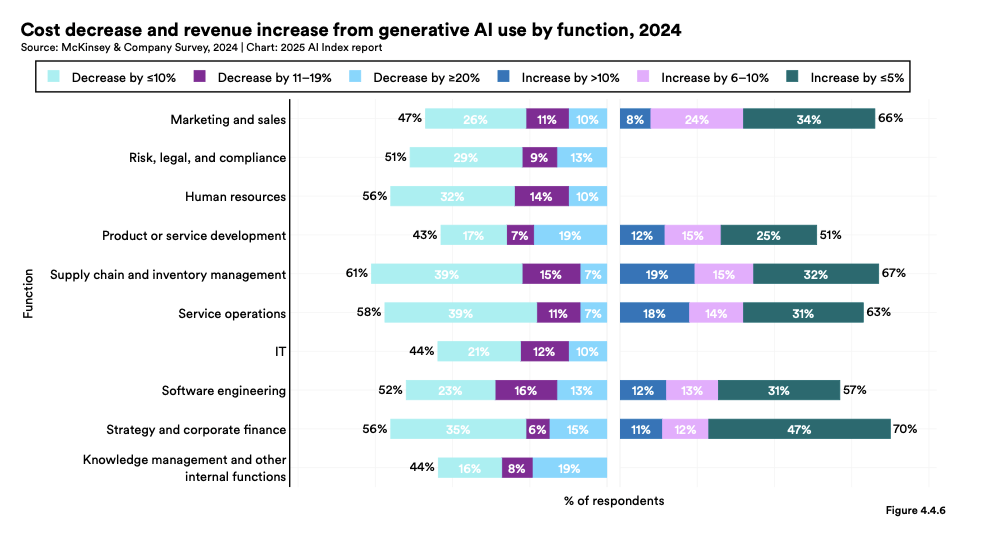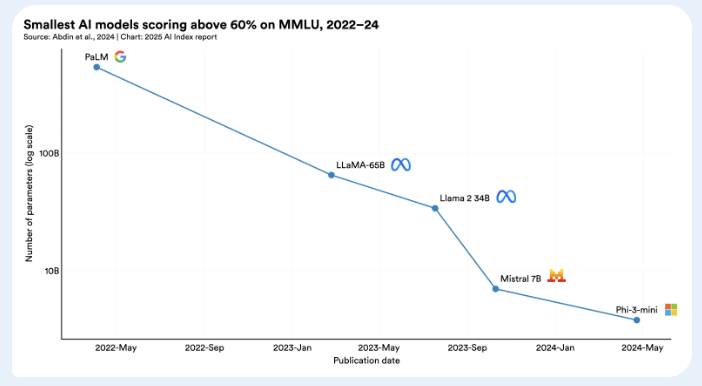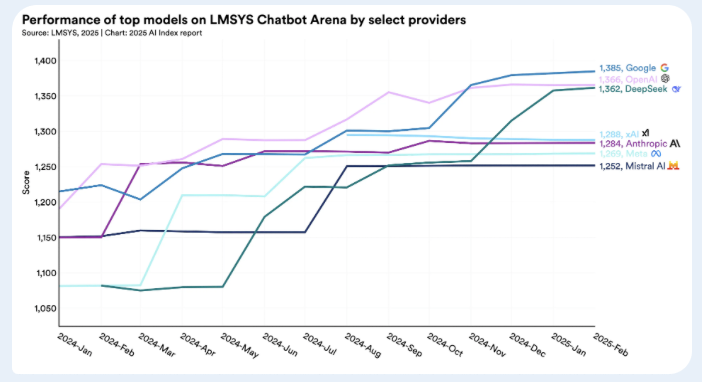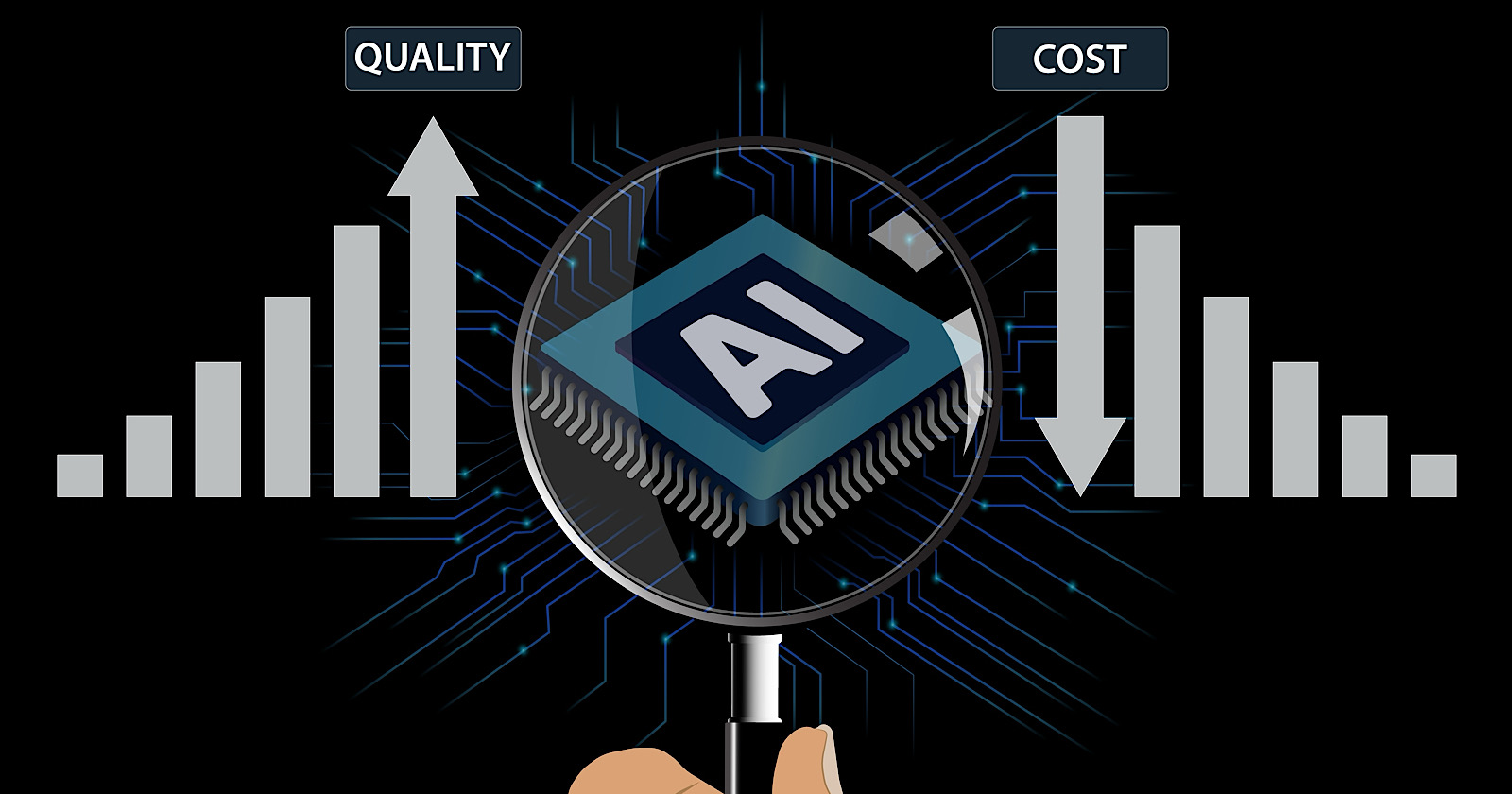The cost of using advanced AI has fallen sharply.
Since late 2022, the price of using GPT-3.5-level AI models has dropped from $20.00 to just $0.07 per million tokens.
According to Stanford HAI’s AI Index Report, that’s a 280-fold reduction in less than two years.
This massive cost drop is changing the pricing of AI marketing tools. Tools that only big companies could afford are now within reach for businesses of all sizes.
AI Cost Reduction
The report shows that large language model (LLM) prices have fallen between 9 and 900 times yearly, depending on the task.
These cost reductions change the ROI for AI in marketing. Tools that were too expensive before could now pay off even for medium-sized companies.
 Source: McKinsey & Company Survey, 2024 | Chart: 2025 AI Index report
Source: McKinsey & Company Survey, 2024 | Chart: 2025 AI Index reportThe gap between the best AI models is closing. The difference between the first and tenth-ranked models has shrunk from 11.9% to just 5.4% over the past year.
The report also shows that AI models are getting smaller while staying powerful. In 2022, to get 60% accuracy on the MMLU benchmark (a test of AI reasoning), you needed models with 540 billion parameters.
By 2024, models 142 times smaller could do the same job. This means businesses can now use advanced AI tools with less computing power and lower costs.
 Chart: 2025 AI Index Report
Chart: 2025 AI Index Report Chart: 2025 AI Index Report
Chart: 2025 AI Index ReportWhat This Means For Marketers
For marketers, these changes bring several potential benefits:
1. Advanced Content Creation at Scale
The price drop makes it affordable to create and optimize content in bulk. Tasks can now be automated cheaply without losing quality.
2. Better Analysis
Newer AI models can process up to 1-2 million tokens (pieces of text) at once. This is enough to analyze entire websites for competitive insights.
3. Smarter Knowledge Management
Retrieval-augmented generation (RAG), where AI pulls information from your company’s data, is improving. This helps marketers build systems that ensure AI outputs match their brand voice and expertise.
The End of AI Moats?
The report shows that AI models are becoming more similar in performance, with little difference between leading systems.
This suggests that the edge in marketing technology may shift from the raw AI power to how well you use it, your strategy, and your integration skills.
As AI capabilities become more common, the real difference-maker for marketing teams will be how effectively they use these tools to create unique value for their companies.
For more on the state of AI, see the full report.





![[SEO, PPC & Attribution] Unlocking The Power Of Offline Marketing In A Digital World](https://www.searchenginejournal.com/wp-content/uploads/2025/03/sidebar1x-534.png)